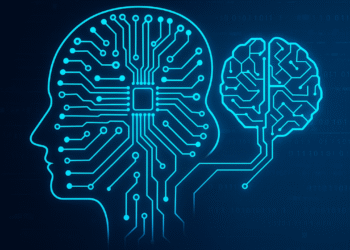Blockchain technology is a term you’ve probably heard, especially if you’ve been exploring cryptocurrencies like Bitcoin. But what exactly is it, and why is everyone talking about it? In this blog, we’ll break down blockchain technology in simple terms, explain how it works, and discuss its importance beyond cryptocurrencies.
What Is Blockchain?
At its core, a blockchain is a type of database—a way to store information. However, unlike traditional databases that are stored on a single computer or server, a blockchain is decentralized. This means the data is distributed across many computers (called nodes) around the world. These nodes work together to maintain and update the database.
Here’s what makes blockchain unique:
- Immutable: Once information is added to the blockchain, it cannot be changed or deleted.
- Transparent: Anyone can view the data stored on a public blockchain.
- Secure: It uses advanced cryptography to protect the data.
How Does Blockchain Work?
A blockchain works by recording information in blocks. Each block contains three main elements:
- Data: This is the information being stored, such as transaction details.
- Hash: A unique code that identifies the block.
- Previous Hash: The code from the previous block, linking the blocks together like a chain.
Whenever new information needs to be added, a new block is created. But before it’s added to the chain, the nodes in the network must agree that the information is valid. This process is called consensus. Once consensus is reached, the block is added, and the chain continues to grow.
Applications of Blockchain Technology
While blockchain is best known for being the technology behind Bitcoin, its uses go far beyond cryptocurrencies. Here are some real-world applications:
- Cryptocurrencies
- Blockchain enables decentralized currencies like Bitcoin and Ethereum. These currencies allow people to send and receive money without needing a bank.
- Supply Chain Management
- Companies use blockchain to track products as they move through the supply chain. This improves transparency and reduces fraud.
- Healthcare
- Patient records can be securely stored and shared using blockchain, ensuring privacy and accuracy.
- Smart Contracts
- These are self-executing contracts where the terms are directly written into the code. They automatically execute when conditions are met, reducing the need for intermediaries.
- Voting Systems
- Blockchain can create transparent and tamper-proof voting systems, ensuring fair elections.
Why Is Blockchain Important?
Blockchain technology is revolutionary because it solves several problems:
- Trust: In traditional systems, trust is placed in central authorities like banks or governments. Blockchain removes the need for intermediaries by creating trust through transparency.
- Efficiency: Transactions can be processed faster and with lower fees compared to traditional systems.
- Security: Its decentralized nature makes it highly resistant to hacking.
Challenges of Blockchain
Despite its advantages, blockchain technology isn’t perfect. Some challenges include:
- Scalability: As more data is added, the blockchain can become slower and harder to manage.
- Energy Consumption: Some blockchains, like Bitcoin, require significant energy to operate.
- Regulation: Governments are still figuring out how to regulate blockchain-based systems.
The Future of Blockchain
Blockchain is still a young technology, but its potential is enormous. As it evolves, we can expect to see even more innovative applications in areas like finance, healthcare, and beyond.
Final Thoughts
Blockchain technology is more than just a buzzword; it’s a game-changer that has the potential to transform industries. By understanding how it works, you’ll be better equipped to see how it might impact your life.
Disclaimer: This blog is for informational purposes only and does not constitute financial advice. Always consult a professional before making any investment decisions.










